Cream City Hostel Has Low Price Tag
Property's current assessment just $310,000, but new hostel should increase its value.
Until this week, there were limited options for visitors wishing to spend a night in the Riverwest neighborhood. Until the advent of Airbnb, crashing on a friend’s sofa was about the only option. Now comes the Cream City Hostel, offering overnight accommodations for up to 55 travelers in a solid building constructed in 1927 as the Holton Street State Bank.
The hostel opened its doors on Sunday, June 23rd with a community celebration that drew crowds of neighbors, community investors in the project, the curious, and about a dozen souls eager to drift off to sleep while the venture sailed forth on its maiden voyage, while remaining firmly anchored to its prominent corner location at 500 E. Center St., at the intersection of N. Holton St.
The Hostel Today
Cream City Hostel occupies a 29-foot by 99-foot building with 10,640 square feet of finished space spread over three floors. The entry is centered on the Center St. facade, quite appropriately. A short flight of stairs leads up to the office; it is flanked by an accessibility lift installed in 1982 when the building housed a day care center. The check-in window greets you as you enter. It also serves as the laundry room for the sheets and towels provided to travelers. (House Rule: do not bring your own bedding here.) There are shelves filled with various volumes of interest to a visitor, including a book on how to start a hostel.
While the clerk checks you in, spin around and face the corner of the room. Here is a miniature, but well-organized bicycle repair shop. This is a handy adjunct for the guests, and guarantees the bicycles available for rent here are in top condition. The shop is also a sensible investment, if only to give Carolyn Weber something to do in between check-ins. For Carolyn Weber is always doing something. The owner of Coast In Bikes has worked with the two-wheeled machines for years. Since 2012, her plans for a hostel were always running in the background. Now they are as concrete as the 10-inch thick walls of the steel-reinforced building.
These rooms are off-limits to all but those who are spending the night at the hostel. So, head to the basement, which is an open space with a surprising amount of natural light, thanks to the large windows (and deep window wells) along the Holton St. facade. Here, in what could someday be a coffee shop, are sofas, board games, shared tables and other homey touches. The north end is a fully equipped kitchen. This community space will serve as the heart of the hostel. At the grand opening event on Sunday, kegs of beer from neighbors Company Brewing and Gathering Space Brewery flowed freely. Hummus and sandwiches abounded. Guests treated themselves to a bowl of perfectly ripe strawberries that had never been to California. On Monday morning, the overnighters were greeted by the aromas of coffee and bacon emanating from downstairs. What a wake-up call!
Built As a Bank
The building was constructed in 1927 for the Holton Street State Bank, organized in a neighborhood tavern in 1921, and operating from a previous structure on the site as early as July, 1922. The new bank was heated by two Steam Sectional Boilers, Model #1027, manufactured by the U.S. Radiator Corporation. They were installed without a permit. This did not please the inspector, who issued a stern warning to the careless bankers. “Final Letter. Pay $2 per boiler fee within the next 48 hours (or) arrest and prosecution will follow. THIS IS FINAL.”
The bank’s cashier raced down to City Hall and remitted the $4 fee. The bank then went about its business for decades, and spent $10,000 in 1950 to spruce the place up with new plaster for the walls and acoustic tiles for the ceiling. In 1961, the bank, which had been in rough financial shape since the Depression, was absorbed by the Capitol Marine Bank, which found the property surplus to its needs. It hung two 4-foot by 6-foot “For Sale” signs flat against the building. There were no immediate takers.
By 1966 it was owned by United Community Services and served as the administrative headquarters of the Milwaukee Boys Club. In 1972 the city approved an application to occupy the space as a day care, and in November of that year the vacant structure was converted as the El Centro del Niño, a bilingual pre-school that “emphasizes Latin culture as it exists in that neighborhood.” It also served as a “training facility to be used in the Day Care training program at UWM.”
The vacant lots to the north were turned into a playground, giving the campus nearly a half-acre of space, which today is a pleasant, if not yet fully realized respite from busy Holton St., just feet away. It is surrounded by 500 linear feet of eight-foot high chain link fence installed in 1980 at a cost of $12,000. The yard also has a GameTime Model #3440 “Sun-Rain-Snow Weather Control Shelter, an odd structure installed at the same time. Colorful playground equipment abounds.
A Waiting Game for the Property
By 2000, the property was owned by the Milwaukee Public Schools, which spent $61,000 on the elevator that year, and also repaired the existing lift. The building closed in 2005, and was declared surplus property in 2012. It attracted the attention of Weber, and developer Juli Kaufmann, who had been scouring the city for an appropriate site for their hostel.
Here, at last, was a suitable location. But there was a catch: the legislature had imposed a moratorium on the sale of MPS buildings for non-educational purposes. The intent of the legislation was to offer opportunities for Choice schools to have first dibs on the surplus buildings. The moratorium ran from 2015 to 2017. At the end of that time, with no suitable offers having been received by the district, the partners sprang into action, and offered theirs. Cream City Hostel was able to secure $900,000 in business financing (much of it from the community) and to complete its building purchase for $150,000 on November 2nd, 2018.
The partners commenced a $200,000 renovation beginning in February of this year, using the plans of Patrick Jones, a neighborhood architect. Virtually every surface in the building, as well as its mechanicals, are of new construction. In place of the former dropped ceiling, overnight visitors can look above and see the pipes of a complete fire-suppression system, equipped with 101 sprinkler heads, installed at a cost of $39,000. As any developer or landlord will tell you, the real money in a building project is spent on such prosaic, hidden, yet value-added items.
A Transformative Project
Carolyn Weber has said from the start, (even when it was still a mere dream) that her Riverwest hostel would “show people the real Milwaukee instead of downtown Milwaukee.” Her point is that a city is best experienced in its neighborhoods, where the visitor may more readily experience the ebb and flow of daily life, unlike if housed in the expensive heart of town. The location has great potential, and now that the building is occupied after 14 years of vacancy, it should prove to be a spur to redevelopment of the many vacant and underutilized buildings in the neighborhood.
The northern end of Riverwest and Harambee has seen a resurgence in manufacturing, after decades of decline; investors and lenders are feeling bullish about the area’s prospects. Riverwest has seen a number of transformative projects over the years, some of which became apparent only some time later. Among them was the launch of Riverwest Brewery in 1988, and the opening of Fuel Cafe on E. Center St. in 1993, both of which drew visitors and new development. Lakefront Brewery later moved to a Riverwest building on N. Commerce St., which is now among the city’s most popular tourist destinations. The Riverwest 24, an all day bicycle event, was launched in 2007 and will celebrate its 12th running July 26th-27th. By then the Cream City Hostel will have taken off its training wheels, as it races into a promising future.
Opening Night
Photos
Pre-Renovation Photos
The Rundown:
- Name of Property: Cream City Hostel
- Address: 500 E. Center St
- Assessed Valuation: The 24,315 square foot lot is assessed at $10,000 ($0.41/s.f.) and the improvements are valued at $300,000 for a total assessed valuation of $310,000. Property is currently listed as exempt from taxation, but that should change with new ownership.
- Taxes: 2018: $0. Property was owned by the city at the time
- Owner: RiverBee, LLC., Jacquelyn Hrovat Registered Agent. Group purchased property from the City of Milwaukee (in Trust for the Milwaukee Board of School Directors) for $150,000 on 11/02/1018
- Type: Former Bank building is now “Rooming House”
- Architect: A. Moorman, St. Paul
- Year Built: 1927
- Neighborhood: Riverwest
- Aldermanic District: 6th; Milele A. Coggs
- Walk Score: 86 out of 100 “Very Walkable” Most errands can be accomplished on foot
- Transit Score: 53 out of 100 “Good Transit” Many available transportation options. MCTS Route 15 at door
How Milwaukee is it? It is 2 miles north-northeast of Milwaukee City Hall.
If you think stories like this are important, become a member of Urban Milwaukee and help support real, independent journalism. Plus you get some cool added benefits.
Political Contributions Tracker
Displaying political contributions between people mentioned in this story. Learn more.
- December 30, 2015 - Milele A. Coggs received $20 from Juli Kaufmann
What's It Worth?
-
Fred Vogel, Jr. Building Has Quite a History
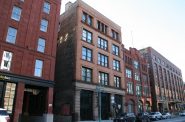 Jul 20th, 2024 by Michael Horne
Jul 20th, 2024 by Michael Horne
-
Milwaukee Yacht Club Worth $2.28 Million
 Mar 27th, 2024 by Michael Horne
Mar 27th, 2024 by Michael Horne
-
Wisconsin Club Worth $5.1 Million
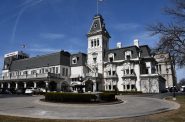 Mar 17th, 2024 by Michael Horne
Mar 17th, 2024 by Michael Horne


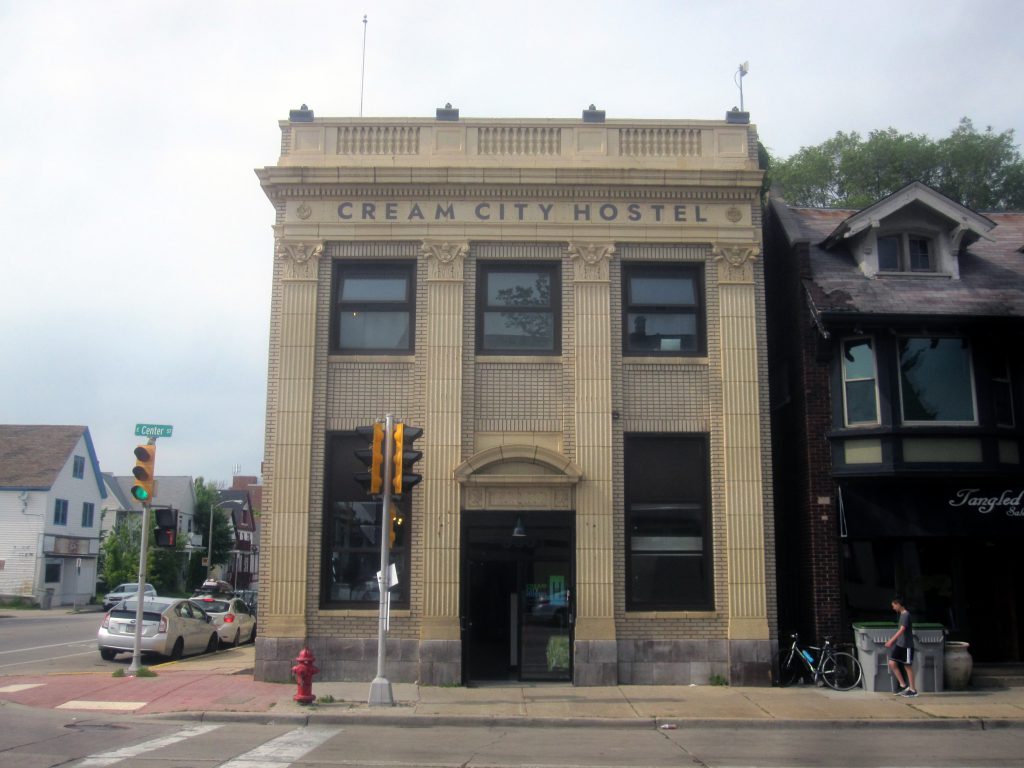
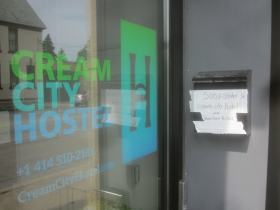
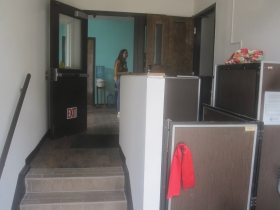
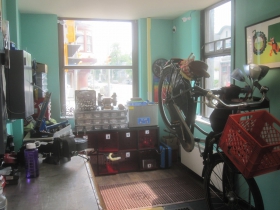
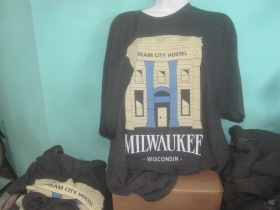
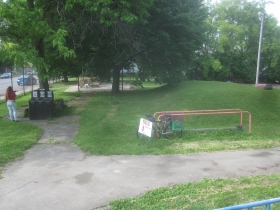
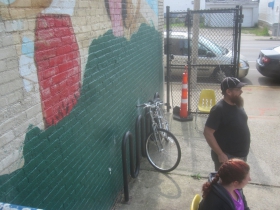
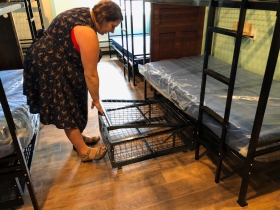
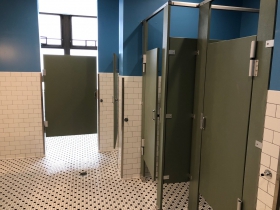
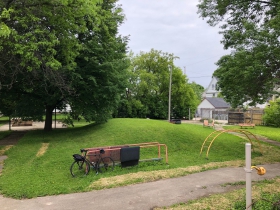
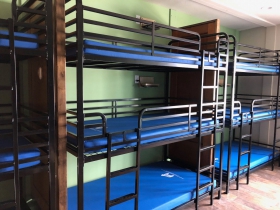
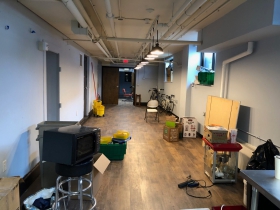
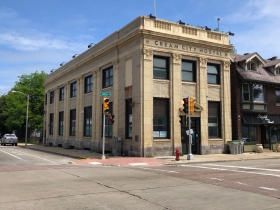
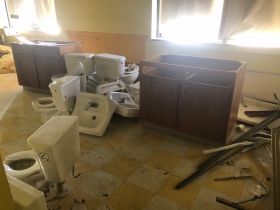
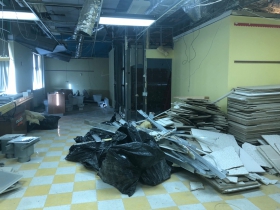
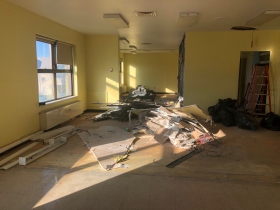
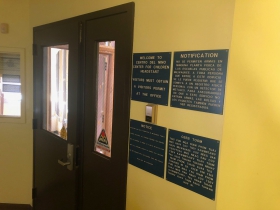
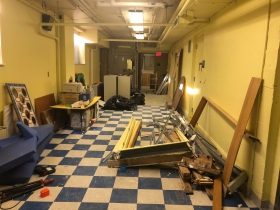
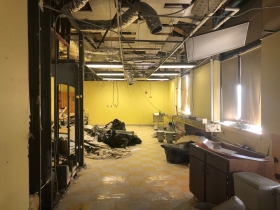




















Awesome story! Very fun to read! This has been a long time dream. Glad to see it established on solid ground ready to grow community and neighborhood.